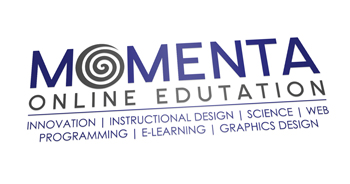Welcome to the Momenta Learning News on Artificial Intelligence. This is issue 43, please feel free to share this post.
Built-in search, artificial intelligence, machine learning and a knowledge graph connecting billions of entities is how Google plans to ultimately compete and win in many markets where it isn't first today. It's easy to note the me-too items outlined at Google I/O. Android N has a few new features, but doesn't advance the ball that much.
|
ARTIFICIAL intelligence is a longstanding science fiction staple that is coming into its own. Google, Facebook, Apple and others are all developing A.I. tools. You can try out some apps today that demonstrate fledgling forms of the technology by smartly, swiftly and automatically doing tasks that would otherwise take lots of effort.
|
it could take a few weeks to months for Next Gen AI to 'learn' what is suspicious activity vs what is not. But it will be sharpened as user behaviors and the nature of business processes are analyzed.
|
You might ask what the difference is between most artificial intelligence (AI) companies and SparkCognition. Here it is: while at other firms, humans build models; SparkCognition puts them together with algorithms. Rather than roughing out one model and then doing a bunch of testing, SparkCognition continually tests and fits models to data accumulating in real time, an architecture that allows it to deal with big data.
|
Between the University of Washington, a thriving tech community, and strong research institutions, like the Allen Institute for Artificial Intelligence (AI2), many of the rapid developments in AI are playing out in Seattle. Perhaps that's why the White House has selected the Emerald City for its first public workshop on artificial intelligence.
|
Artificial intelligence (AI) is one of the most evocative and confusing terms in technology. It seems there are new announcements almost every day about the advancements of machines and their ability to 'think'. We have seen a machine master the complex game of Go, previously thought to be the most difficult challenge of artificial processing.
|
The subject gains particular relevance against the background of large projects which currently have been launched in the EU ("Human Brain Project") and in the US ("Brain Initiative") within the framework of which the functional principles of the brain shall be unraveled by means of supercomputers, i.a.
|
Artificial intelligence (AI) is one of the most used technology today. You can find it in schools, offices, mobile applications and even financial firms. According to reports, banks will be using AI to handle compliance overload.
|
A computer program might be able to talk you into thinking it's human, but will it ever be Shakespeare? The so-called Turing Test, which measures the ability of a computer to convince a person communicating with it - typically though a typed question-and-answer exchange - that they are actually conversing with another human, has long been the presumed arbiter of machine intelligence.
|
Computers can recognize cats in photos and translate websites into different languages thanks to recent advances in artificial intelligence. But that's just the tip of the iceberg when it comes to someday creating computers that can think like humans. Take the example of Google's AlphaGo computer system, which managed to defeat a human at the ancient Chinese board game Go.
|


No comments:
Post a Comment